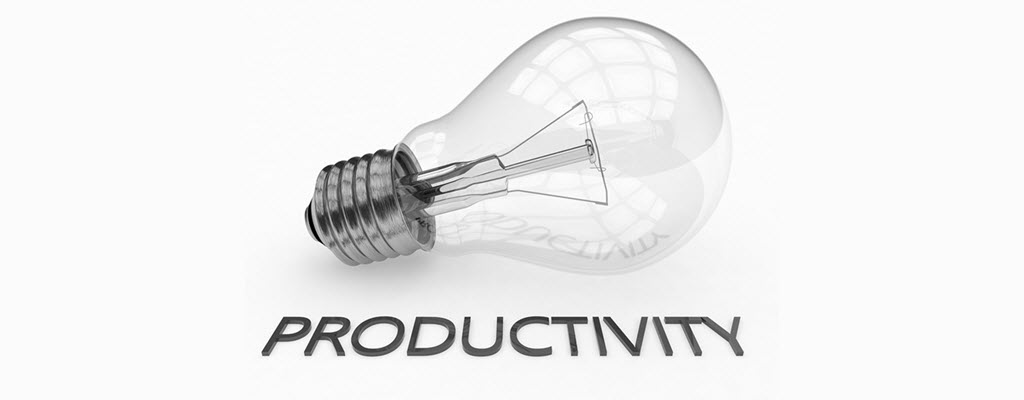 Over the last three decades, writers have tackled productivity topics with an abundance of enthusiasm. Despite the dogged attention, people still grapple with the idea of productivity—and most of us spend our working careers trying to get better at it. The following tips may help you change your habits and improve your productivity.
Over the last three decades, writers have tackled productivity topics with an abundance of enthusiasm. Despite the dogged attention, people still grapple with the idea of productivity—and most of us spend our working careers trying to get better at it. The following tips may help you change your habits and improve your productivity.
Start with the most important task. Carve out a minimum of two hours each day for the important tasks. These are ones that further your goals or priorities. Ask yourself “What one thing do I need to accomplish to make the greatest impact? Is it urgent and important? Am I the best person to do it? How can I simplify the process?” To be more efficient, focus on the things that really matter.
Keep your goals at the forefront. Organize your to-do list by impact and alignment with goals. If your goal is complicated, break it into smaller sub-goals. Figure out which item is most important to achieve those goals and which could create an additive effect for you. Success builds sequentially.
Don’t worry about doing something perfectly. Just do it. Not everything demands perfection.Review the next day’s tasks the night before. Spend 15 minutes before you go to bed creating and prioritizing your to-do list. Star the essential tasks. This activity will mentally prepare you for the day to come and start your subconscious ruminating about the issues.
Sharpen your focus. Stay on task, avoid distractions, and ignore anything that doesn’t contribute to accomplishing this task. Dispel the conventional wisdom that multitasking is necessary to achieve your goals. It’s the ability to focus on one thing at a time that will truly increase your productivity. Take note of activities that kill your momentum. Organize your files so you don’t have to spend unproductive time looking for things you need. Human brains are not particularly adept at ignoring irrelevancy, and shifting your attention to a different task can cause you to lose focus. Be aware that the top productivity killers are cell phones/texting, internet, gossip, social media, and email—plan your day accordingly.
Develop new habits. According to best-selling author Charles Duhigg, changing a habit is easy if you understand the habit loop, which consists of a cue (time of day, location, people, etc.), a reward (what craving does your habit satisfy?), and a routine (activity triggered by a cue). To change a habit, determine how to implement a healthier routine that yields the same reward. People create habits through repetition and persistence, so if you give these ideas a try, keep at it! Typically, a new habit takes hold in a month or so.
Take care of yourself. Strive to get the sleep you need and be mindful of your stress levels. Take breaks to recharge your mind and body, turn your face to the sun, and decompress. You may not be at your peak every day, but if you take care of yourself, you can master most days with ease. If possible, don’t work through lunch. A break for lunch eases stress, refreshes creativity, and helps you clear your mind to refocus when you return. Short walks can also clear your head as well.
Learning to work smarter to get more done takes time, but incorporating these principles into your daily life may help increase your productivity. Every person is different, so the key is to find a strategy that works for you and stick with it!